Authors & editors
ANU Press has collaborated with a diverse range of authors and editors across a wide variety of academic disciplines. Browse the ANU Press collection by author or editor.

Troubled Waters »
Confronting the Water Crisis in Australia’s Cities
Edited by: Patrick Troy
Publication date: June 2008
Australian cities have traditionally relied for their water on a ‘predict-and-provide’ philosophy that gives primacy to big engineering solutions. In more recent years privatised water authorities, seeking to maximise consumption and profits, have reinforced the emphasis on increasing supply. Now the cities must cope with the stresses these policies have imposed on the eco-systems from which they harvest water, into which they discharge wastes, and on which they are located. Residents are having to pay more for their water, while the cities themselves are becoming less sustainable.
Must we build more dams and desalination plants, or should we be managing the demand for urban water more prudently? This book explores the demand for urban water and how it has changed in response to shifting social mores over the past century. It explains how demand for centralised provision of water might be reshaped to enable the cities to better cope with expected changes in supply as our climate changes. And it discusses the implications of property rights in water for proposals to privatise water services.

Agenda - A Journal of Policy Analysis and Reform: Volume 15, Number 2, 2008 »
Authored by: William Coleman, Alex Robson
Publication date: June 2008
Agenda is a refereed, ECONLIT-indexed and RePEc-listed journal of the College of Business and Economics, The Australian National University. Launched in 1994, Agenda provides a forum for debate on public policy, mainly (but not exclusively) in Australia and New Zealand. It deals largely with economic issues but gives space to social and legal policy and also to the moral and philosophical foundations and implications of policy.
Subscribe to the Agenda Alerting service if you wish to be advised on forthcoming or new issues.
Download for free
Not available for purchase
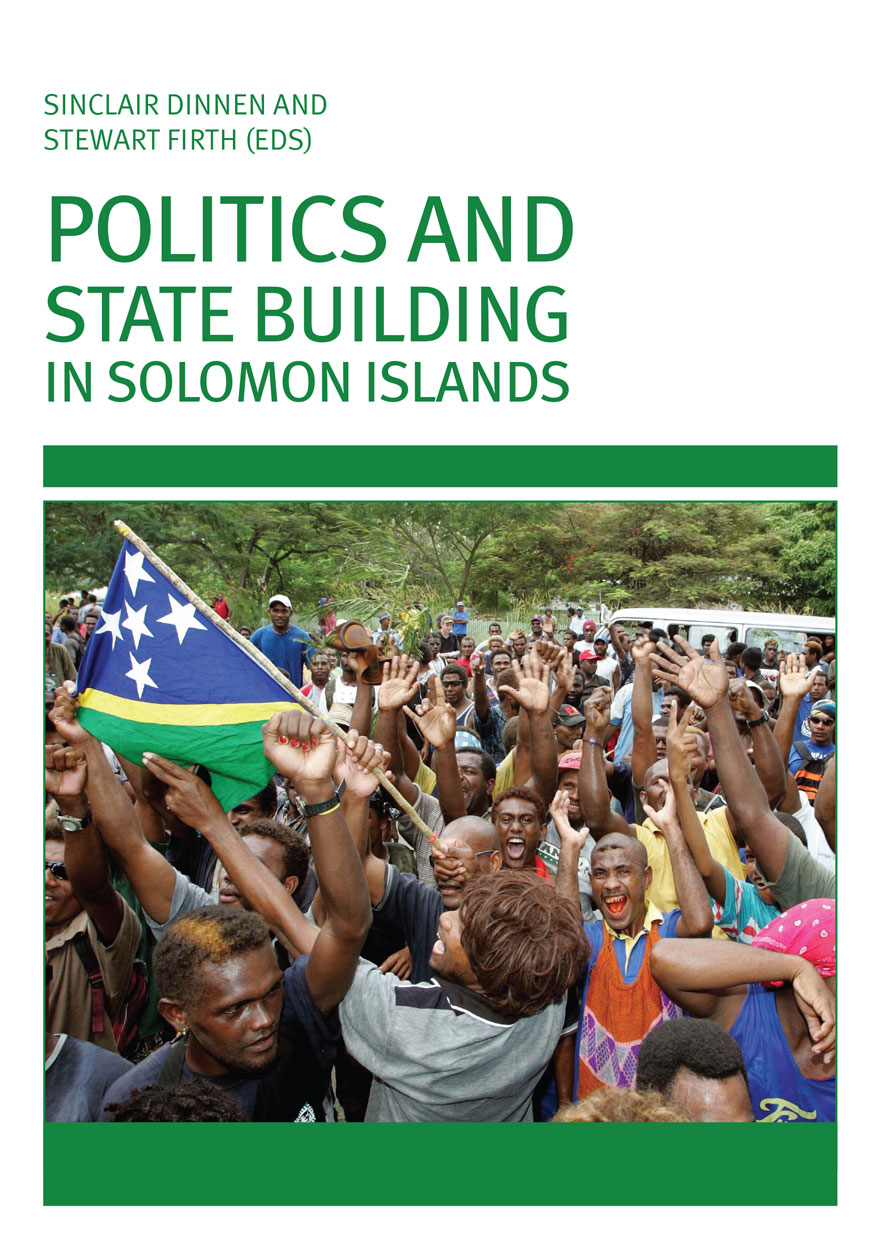
Politics and State Building in Solomon Islands »
Edited by: Sinclair Dinnen, Stewart Firth
Publication date: May 2008
Politics and State Building in Solomon Islands examines a crisis moment in recent Solomon Islands history. Contributors examine what happened when unrest engulfed the capital of the small Melanesian country in the aftermath of the 2006 national elections, and consider what these events show about the Solomon Islands political system, the influence of Asian interests in business and politics, and why the crisis is best understood in the context of the country’s volatile blend of traditional and modern politics.
Until the disturbances of April 2006 and subsequent deterioration in bilateral relations between Australia and Solomon Islands under the Sogavare government, experts had hailed the Regional Assistance Mission to Solomon Islands (RAMSI) as an unqualified success. Some saw it as a model for ‘cooperative intervention’ in ‘failing states’ worldwide. Following these developments success seems less certain and aspects of the RAMSI model appear flawed.
Using the case of Solomon Islands, this book raises fundamental questions about the nature of ‘cooperative intervention’ as a vehicle for state building, asking whether it should be construed as a mainly technical endeavour or whether it is unavoidably a political undertaking with political consequences. Providing a critical but balanced analysis, Politics and State Building in Solomon Islands has important implications for the wider debate about international state-building interventions in ‘failed’ and ‘failing’ states.
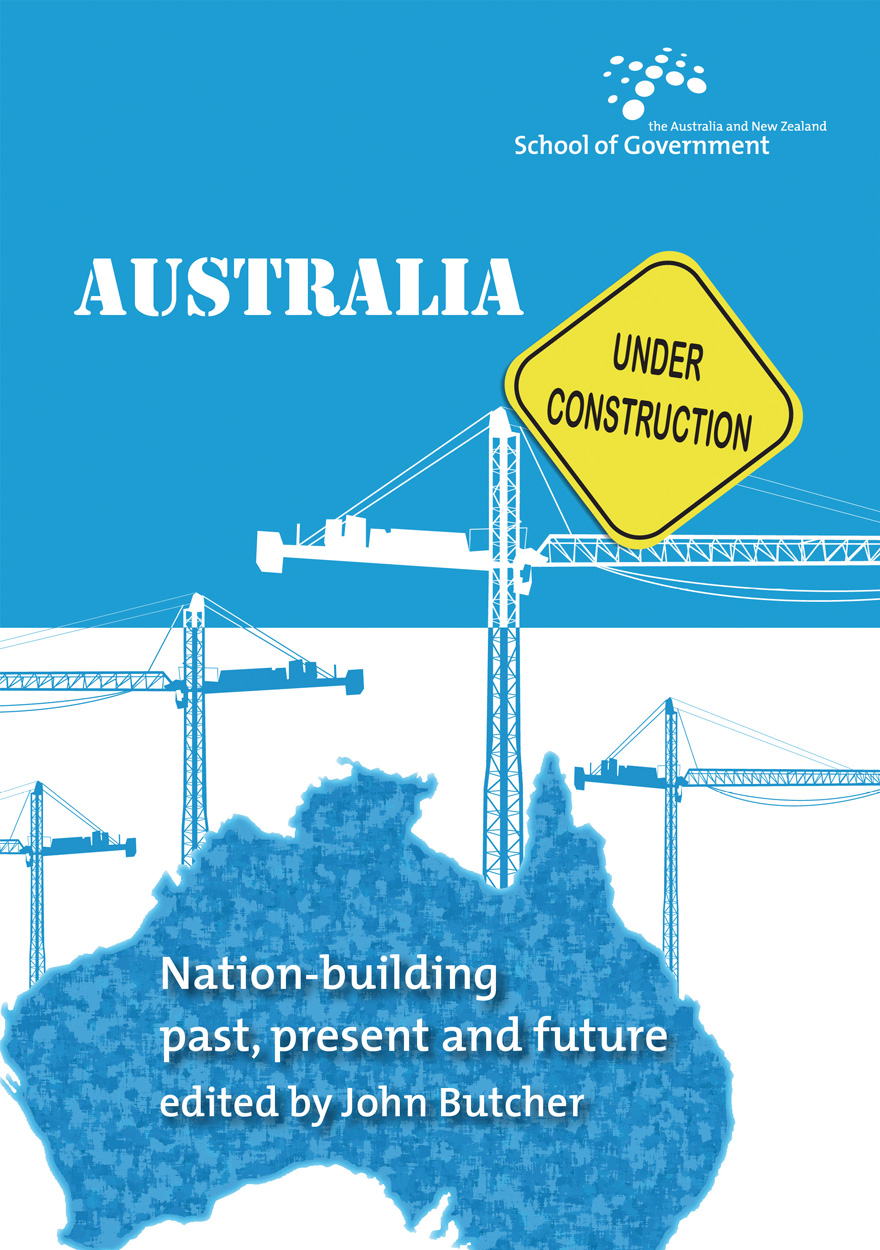
Australia Under Construction »
Nation-building past, present and future
Edited by: John Butcher
Publication date: April 2008
The Australian nation is a work in progress. So conclude the authors whose views are represented in this most recent offering in the ANZSOG monograph series, Australia Under Construction: Nation-building past, present and future. From its beginnings as a settler society through to present day concerns about ‘broadbanding the nation’, the nation-building narrative has resonated with Australians. The very idea of nation-building has both excited the popular imagination about what we might achieve as a society and a nation, and has occasioned despair about missed opportunities. The eleven authors contributing to this monograph reflect on these, and other themes from a variety of perspectives. They challenge our understanding of the term ‘nation-building’, reflect on its contemporary relevance as a framework for public policy and even re-appraise the contribution of past ‘iconic’ nation-building endeavours. To this subject the authors bring intelligence, wit and a healthy disdain for sacred cows. A stimulating read for anyone interested in the history, challenges and prospects of nation-building in Australia.
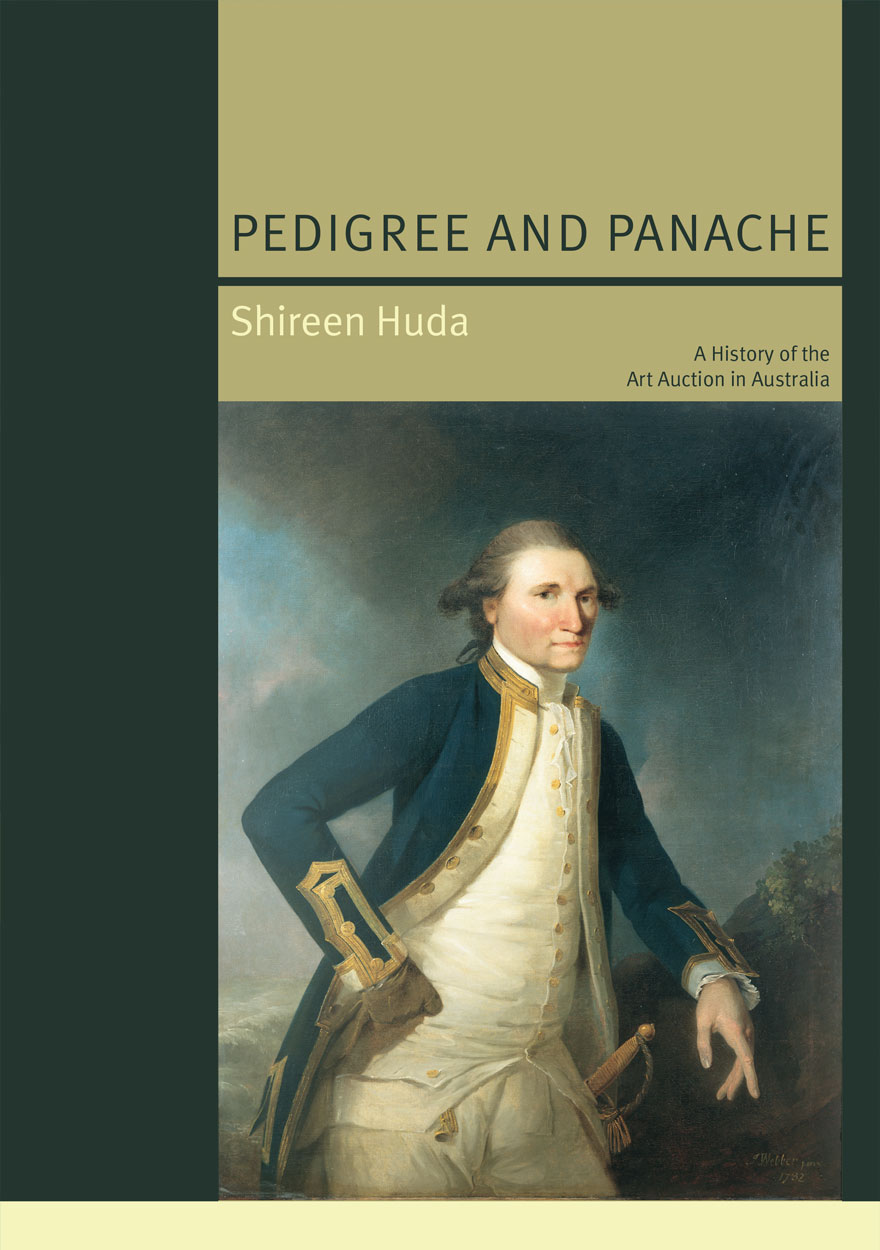
Pedigree and Panache »
A History of the Art Auction in Australia
Authored by: Shireen Huda
Publication date: April 2008
Art auctions have long captured the public imagination. They regularly make news headlines and have become synonymous with glamour, money and social distinction. The marketing of auction houses and the works they sell has resulted in firms attaining authoritative positions and the ability both to influence and reflect collecting tastes. Pedigree and Panache is the first comprehensive history of the art auction in Australia. In this fascinating work, Shireen Huda investigates the construction of the glamorous reputation of art auctions and art auction houses. Featuring absorbing case studies of key art auctions and major art auction houses in Australia (including Christie’s, Sotheby’s and Deutscher-Menzies) the work provides an overview of the origin and international development of art auctions. The development of the Australian marketplace is then explored, detailing colonial inception and continuing until Christie’s withdrawal of its saleroom presence in 2006.
This book is an engaging read for those involved in the art industry, as well as historians, artists, collectors and anyone interested in the art market, art investment, social history and art history.
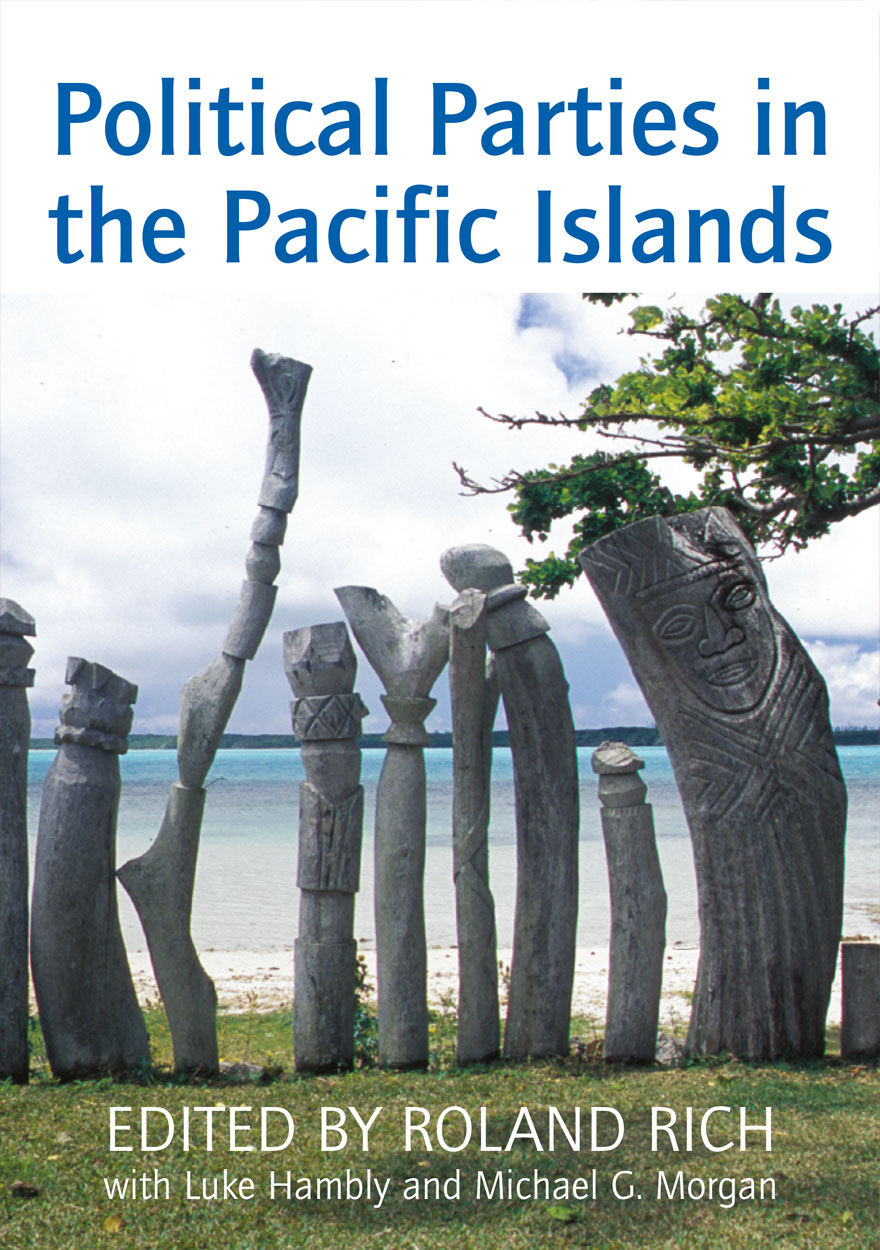
Political Parties in the Pacific Islands »
Edited by: Roland Rich, Luke Hambly, Michael G. Morgan
Publication date: April 2008
While political parties remain an indispensable institutional framework for representation and governance in a democracy, the democracies of many Pacific Islands nations are undermined by the weakness and inefficacy of their local political parties.
Addressing the implications of the lack of established party systems across the Pacific, this collection seeks to illuminate the underlying assumptions and suppositions behind the importance of coherent and effective parties to overall democratic functioning.
Focusing on the political systems of East Timor, Papua New Guinea, Solomon Islands, Vanuatu, New Caledonia, Fiji and Samoa, the coherent structure of the volume makes it consistently useful as both an articulate analytical text and a reference tool concerning the political composition, history and direction of Pacific states.
Featuring contributions from scholars who are familiar names to even the most casual of Pacificists, Political Parties in the Pacific is the benchmark reference work on the political parties of the Pacific: an invaluable resource for students, scholars and researchers of the Pacific and international politics.
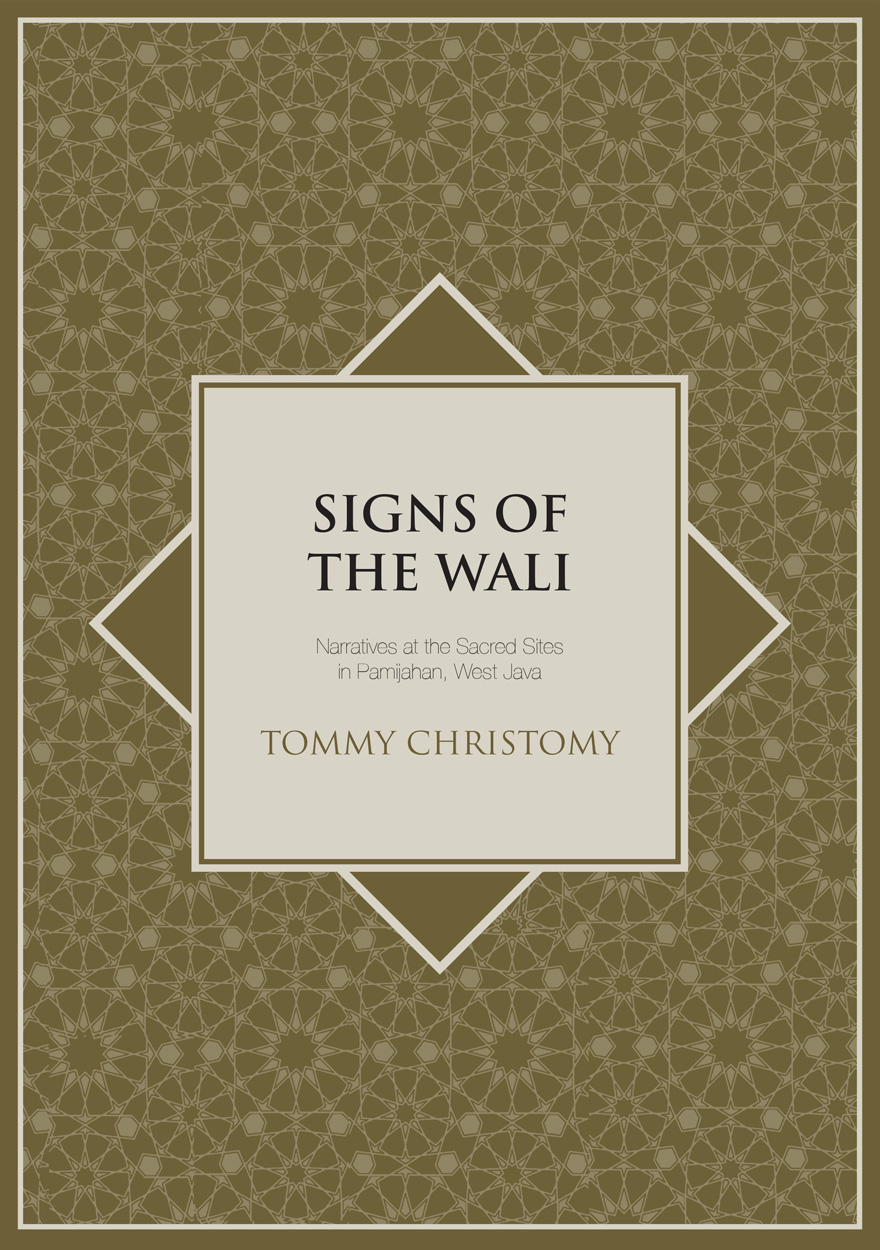
Signs of the Wali »
Narratives at the Sacred Sites in Pamijahan, West Java
Authored by: Tommy Christomy
Publication date: April 2008
In Signs of the Wali, Dr Tommy Christomy focuses on the one of the early founders of Islam on Java, Shakyh Abdul Muhyi, whose burial site at Pamijahan in Tasikmalaya is a place of contemporary ziarah. This study initially conceived of as a philological exploration of historical manuscripts has been transformed into a study of ‘living manuscripts’ – the contemporary narratives of the custodians at Pamijahan.
As elsewhere in the Islamic world, tarekat and ziarah intersect in popular practice at Pamijahan. Dr Christomy explores this intersecting world, explaining the steps of his own research investigations that enfold as a journey of discovery as he proceeds. This investigation involves the search for traces of Tarekat Shattiriyyah in Pamijahan, given the pervasive presence of Tarekat Qadirriyah-Nashabandiyyah throughout Tasikmalaya. That Tarekat Shattiriyyah survives to this day is itself evidence of the tenacity that its historical roots have established in a particular place.

Agenda - A Journal of Policy Analysis and Reform: Volume 15, Number 1, 2008 »
Authored by: William Coleman, Alex Robson
Publication date: April 2008
Agenda is a refereed, ECONLIT-indexed and RePEc-listed journal of the College of Business and Economics, The Australian National University. Launched in 1994, Agenda provides a forum for debate on public policy, mainly (but not exclusively) in Australia and New Zealand. It deals largely with economic issues but gives space to social and legal policy and also to the moral and philosophical foundations and implications of policy.
Subscribe to the Agenda Alerting service if you wish to be advised on forthcoming or new issues.
Download for free
Not available for purchase
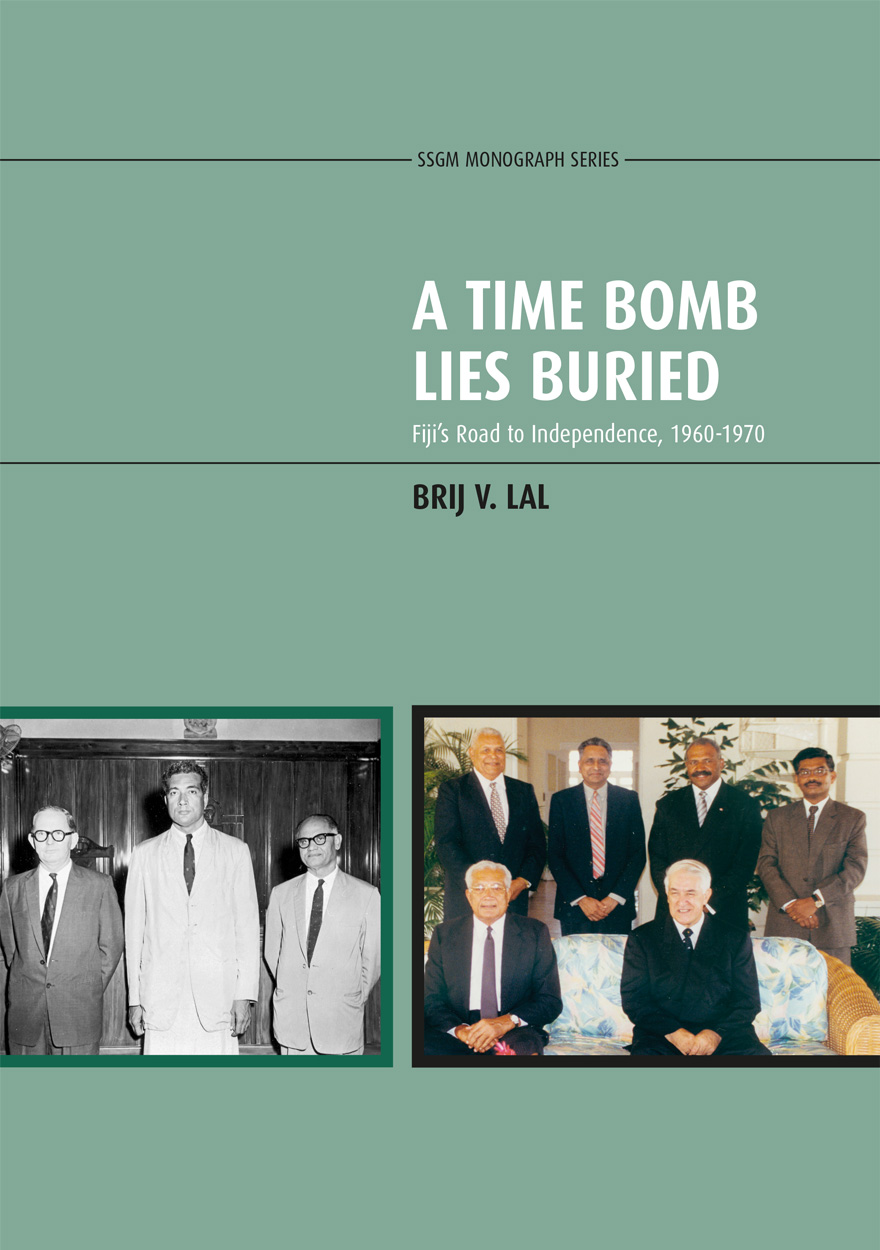
A Time Bomb Lies Buried »
Fiji’s Road to Independence, 1960-1970
Authored by: Brij V. Lal
Publication date: March 2008
A Time Bomb Lies Buried discusses the debates which took place in Suva and London as well as the politics and processes which led Fiji to independence in 1970 after 96 years of colonial rule. It provides an essential background to understanding the crises and convulsions which have haunted Fiji ever since in its search for a constitutional settlement for its multiethnic population.
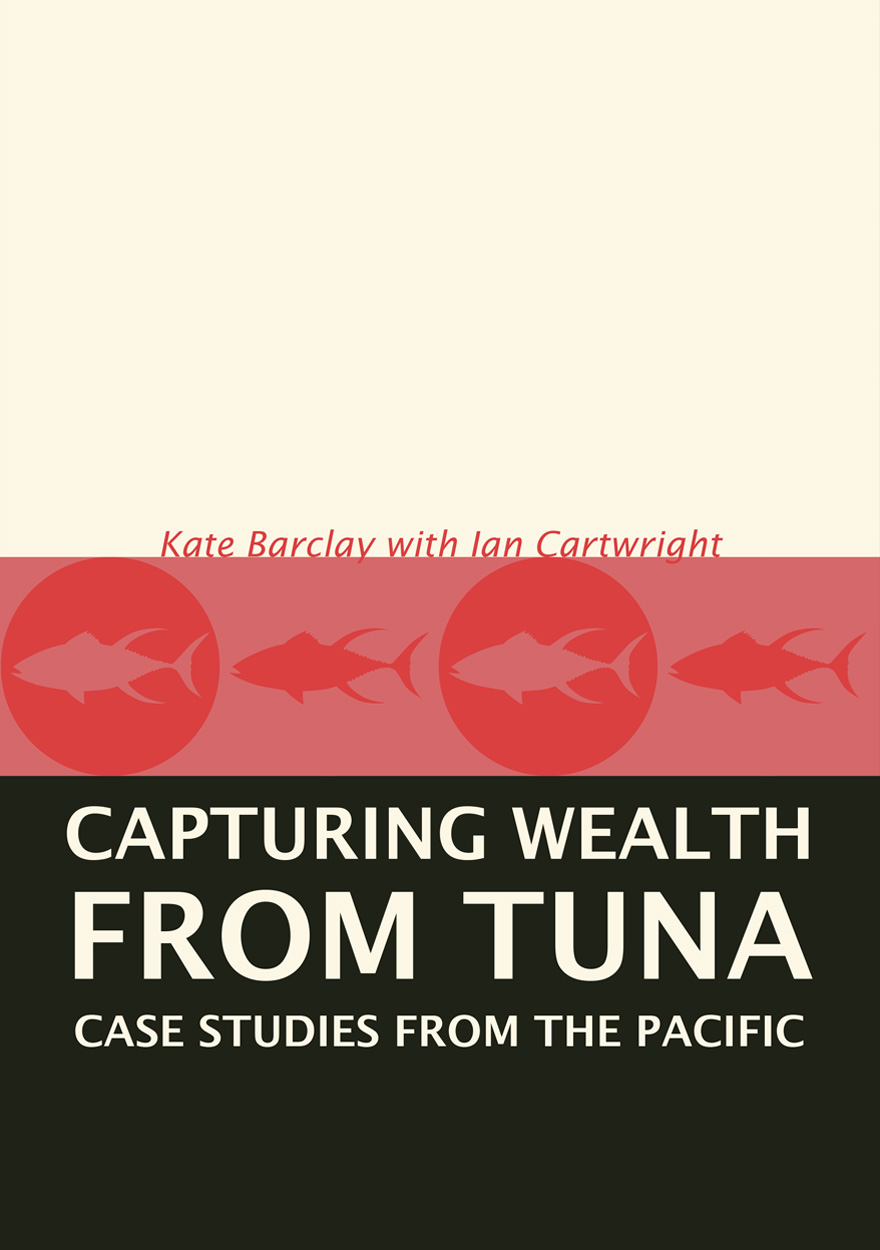
Capturing Wealth from Tuna »
Case Studies from the Pacific
Authored by: Kate Barclay, Ian Cartwright
Publication date: January 2008
The Western and Central Pacific Ocean is home to the largest tuna fishery in the world – around half of the world’s tuna supply – and is a vital economic resource for Pacific island countries.
The potential of the Pacific tuna fishery to contribute to economic development in the Pacific island countries is enormous, but will require a cooperative regional strategy to maximise access fees from distant water fishing nations, as well as targeted domestic policy and legislation to encourage local fishing industries. Together with the importance of acting strategically with regard to such a variable resource, the lesson of fisheries management globally is that it is most effective when it takes into consideration social, cultural and political contexts.
Based on an extensive study of six Pacific island states, Capturing Wealth from Tuna maps out the aspirations and limitations of six Pacific island countries and proposes strategies for capturing more wealth from this resource in a sustainable and socially equitable manner.
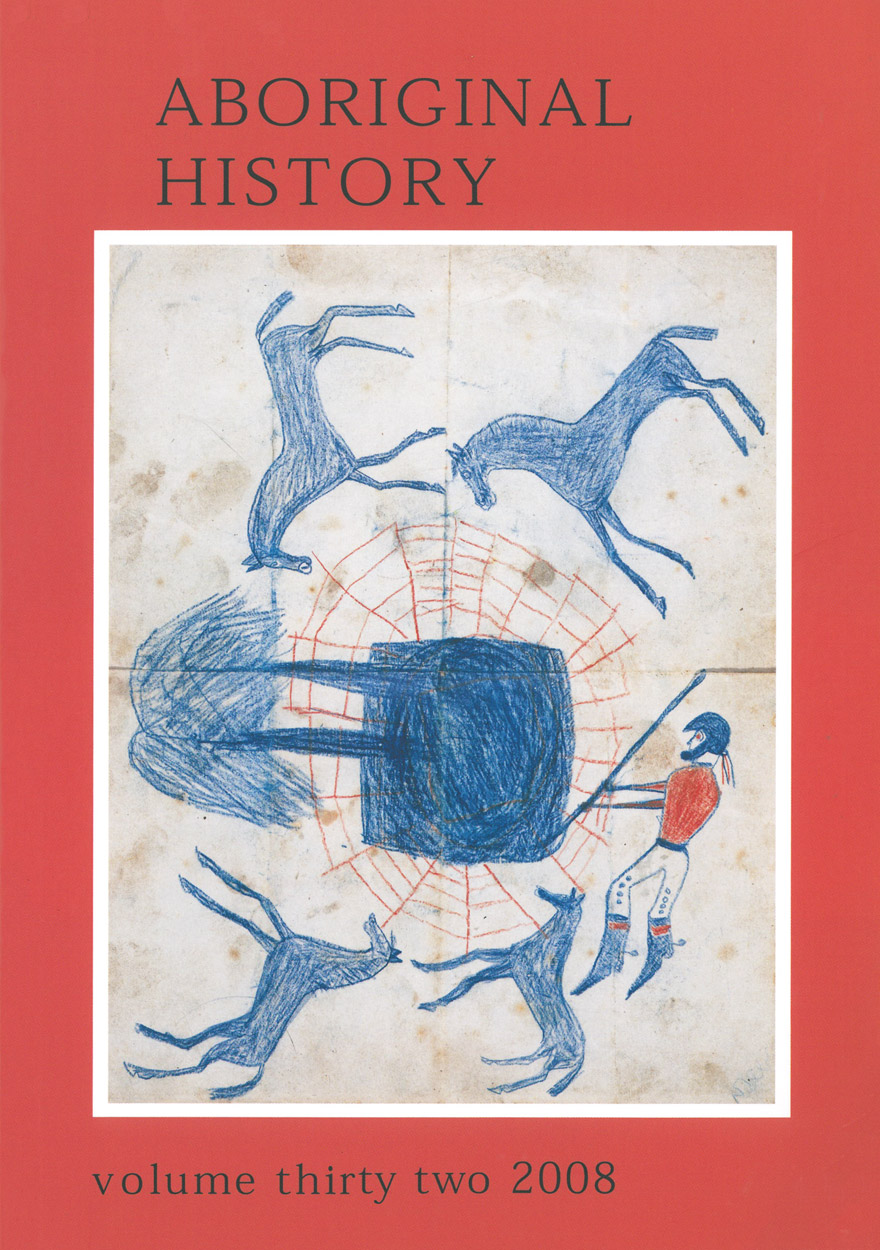
Aboriginal History Journal: Volume 32 »
Publication date: 2008
Since 1977, the journal Aboriginal History has pioneered interdisciplinary historical studies of Australian Aboriginal people’s and Torres Strait Islander’s interactions with non-Indigenous peoples. It has promoted publication of Indigenous oral traditions, biographies, languages, archival and bibliographic guides, previously unpublished manuscript accounts, critiques of current events, and research and reviews in the fields of anthropology, archaeology, sociology, linguistics, demography, law, geography and cultural, political and economic history.
Aboriginal History Inc. is a publishing organisation based in the Australian Centre for Indigenous History, Research School of Social Sciences, The Australian National University, Canberra.
For more information on Aboriginal History Inc. please visit aboriginalhistory.org.au.
Download for free
Not available for purchase
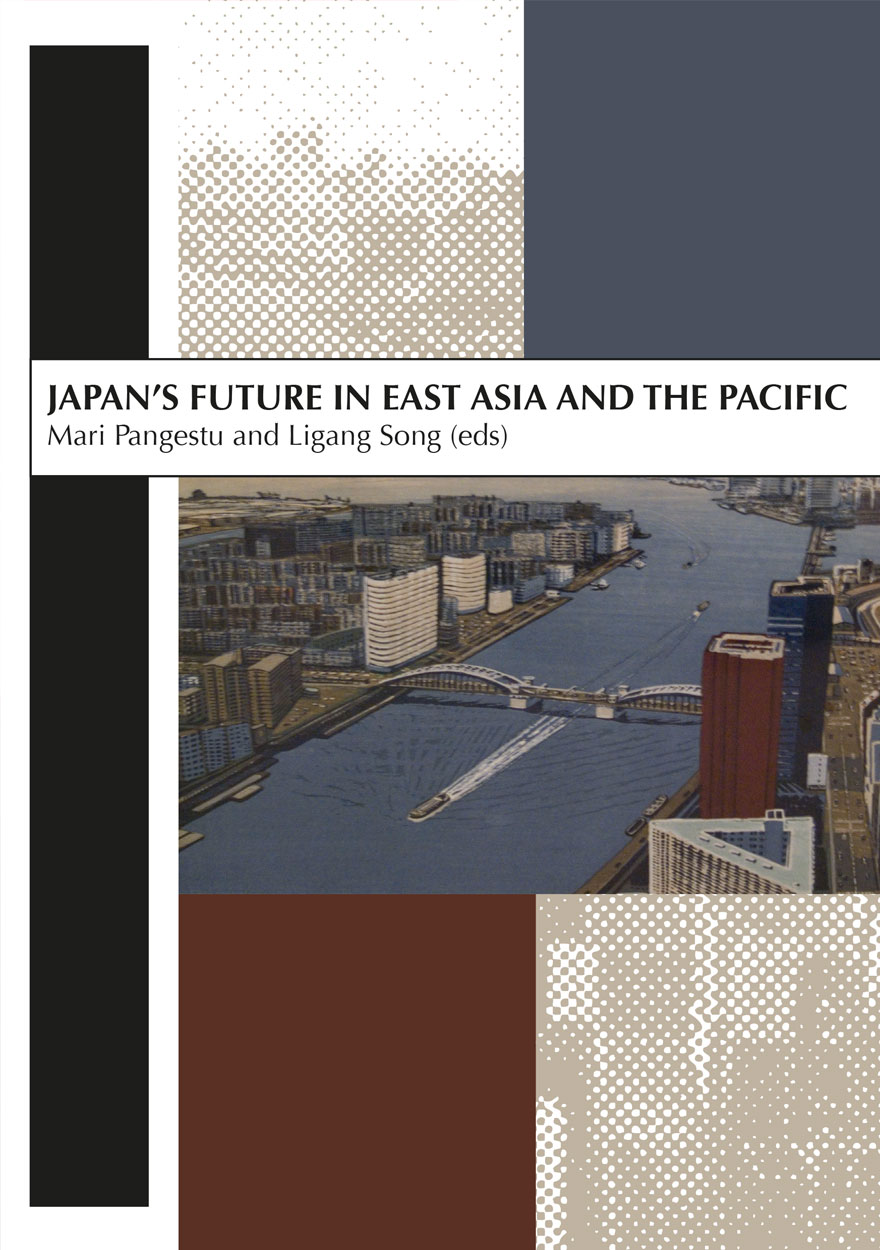
Japan's Future in East Asia and the Pacific »
Edited by: Mari Pangestu, Ligang Song
Publication date: December 2007
Japan’s Future in East Asia and the Pacific takes a ’big-picture‘ approach to Japan’s economic place in East Asia alongside that of China. It analyses Japan’s successes and experiments in trade policy as well as its failures in macro-economic policy. Japan’s diplomatic and economic integration strategies are also examined for their impact on East Asia and on Australia. The collection assesses China’s growth and dynamism and questions the nature of the competition for economic influence between Japan and China.
Contributors to Japan’s Future in East Asia and the Pacific are all graduates of The Australian National University who are making their mark in the region as scholars and economists on East Asian and Pacific affairs.

Transgressions »
Critical Australian Indigenous histories
Edited by: Ingereth Macfarlane, Mark Hannah
Publication date: December 2007
This volume brings together an innovative set of readings of complex interactions between Australian Aboriginal people and colonisers. The underlying theme is that of ‘transgression’, and Michel Foucault’s account of the necessary dynamic that exists between transgression and limit. We know what constitutes the limit, not by tracing or re-stating the boundaries, but by crossing over them. By exploring the mechanisms by which limits are set and maintained, unexamined cultural assumptions and dominant ideas are illuminated. We see the expectations and the structures that inform and support them revealed, often as they unravel. Such illuminations and revelations are at the core of the Australian Indigenous histories presented in this collection.
For more information on Aboriginal History Inc. please visit aboriginalhistory.org.au.
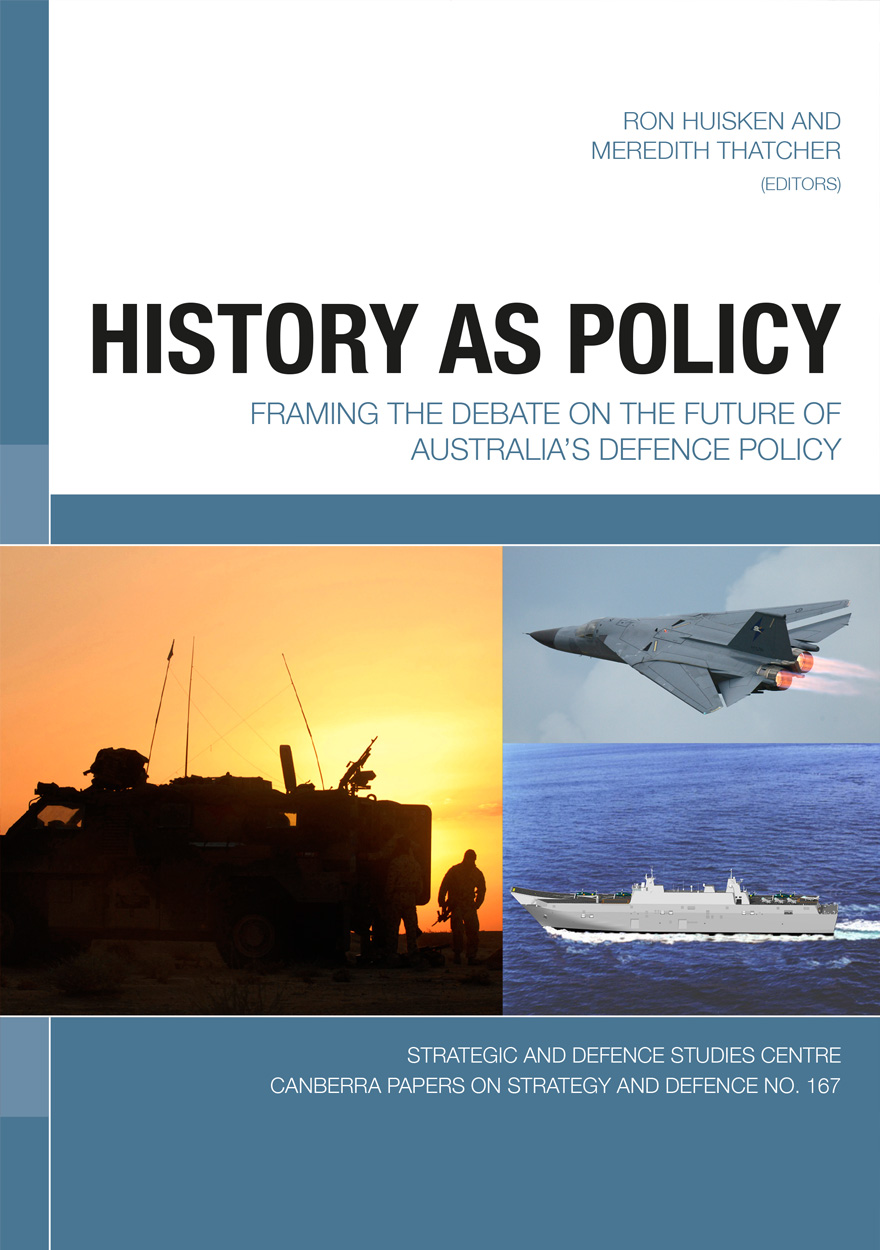
History as Policy »
Framing the debate on the future of Australia’s defence policy
Edited by: Ron Huisken, Meredith Thatcher
Publication date: December 2007
The fortieth anniversary of the Strategic and Defence Studies Centre’s founding provided the opportunity to assemble many of Australia’s leading analysts and commentators to review some of the more significant issues that should define Australian defence policy.
In the first 20 years after its establishment, SDSC scholars played a prominent role in shaping the ideas and aspirations that eventually found official expression in the 1987 Defence of Australia White Paper. This policy sustained a coherent balance between strategy, force structure and budgets for well over a decade. In recent years, however, the cumulative effects of the end of the Cold War and watershed events like the East Timor experience; the attacks on New York and Washington, D.C., in September 2001; the Bali bombings in October 2002; and the invasion of Iraq in March 2003 have fractured the former consensus on defence policy. These developments have eroded acceptance of the core judgements underpinning defence policy. This has led to a more tenuous connection between some recent major equipment acquisitions and declared policy.
The unravelling of the consensus on the ‘defence of Australia’ policy means that we must again undertake a balanced, long-term assessment of the nature of Australia’s strategic interests. Only by doing so can we determine the kinds of armed forces that would contribute most effectively to protecting those interests. The papers collected in this volume are not informed by a common view of where Australia should focus its defence policy, but all address themes that should figure prominently in this difficult but essential task.
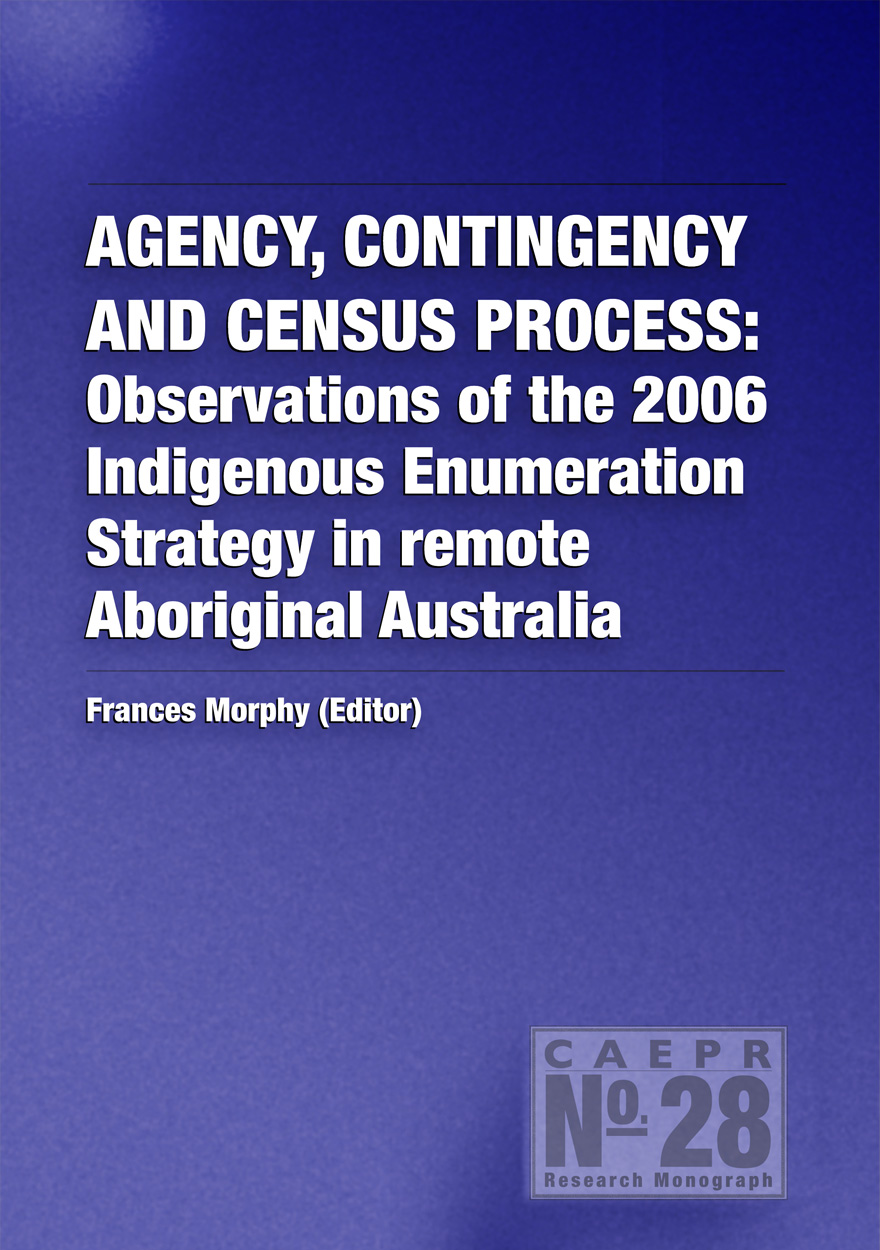
Agency, Contingency and Census Process »
Observations of the 2006 Indigenous Enumeration Strategy in remote Aboriginal Australia
Edited by: Frances Morphy
Publication date: December 2007
The Indigenous Enumeration Strategy (IES) of the Australian National Census of Population and Housing has evolved over the years in response to the perceived ‘difference’ of the Aboriginal and Torres Strait Islander populations. Its defining characteristics are the use of locally recruited, mostly Indigenous collector interviewers, and the administration of a modified collection instrument in discrete Indigenous communities, mostly in remote Australia.
The research reported here is unique. The authors, with the assistance of the Australian Bureau of Statistics, were able to follow the workings of the IES in the 2006 Census from the design of the collection instrument to the training of temporary census field staff at the Northern Territory’s Census Management Unit in Darwin, to the enumeration in four remote locations, through to the processing stage at the Data Processing Centre in Melbourne. This allowed the tracking of data from collection to processing, and an assessment of the effects of information flows on the quality of the data, both as input and output.
This study of the enumeration involved four very different locations: a group of small outstation communities (Arnhem Land), a large Aboriginal township (Wadeye), an ‘open’ town with a majority Aboriginal population (Fitzroy Crossing), and the minority Aboriginal population of a major regional centre (Alice Springs). A comparison between these contexts reveals differences that reflect the diversity of remote Aboriginal Australia, but also commonalities that exert a powerful influence on the effectiveness of the IES, in particular very high levels of short-term mobility. The selection of sites also allowed a comparison between the enumeration process in the Northern Territory, where a time-extended rolling count was explicitly planned for, and Western Australia, where a modified form of the standard count had been envisaged.
The findings suggest that the IES has reached a point in its development where the injection of ever-increasing resources into essentially the same generic set and structure of activities may be producing diminishing returns. There is a need for a new kind of engagement between the Australian Bureau of Statistics and local government and Indigenous community-sector organisations in remote Australia. The agency and local knowledge of Indigenous people could be harnessed more effectively through an ongoing relationship with such organisations, to better address the complex contingencies confronting the census process in remote Indigenous Australia.
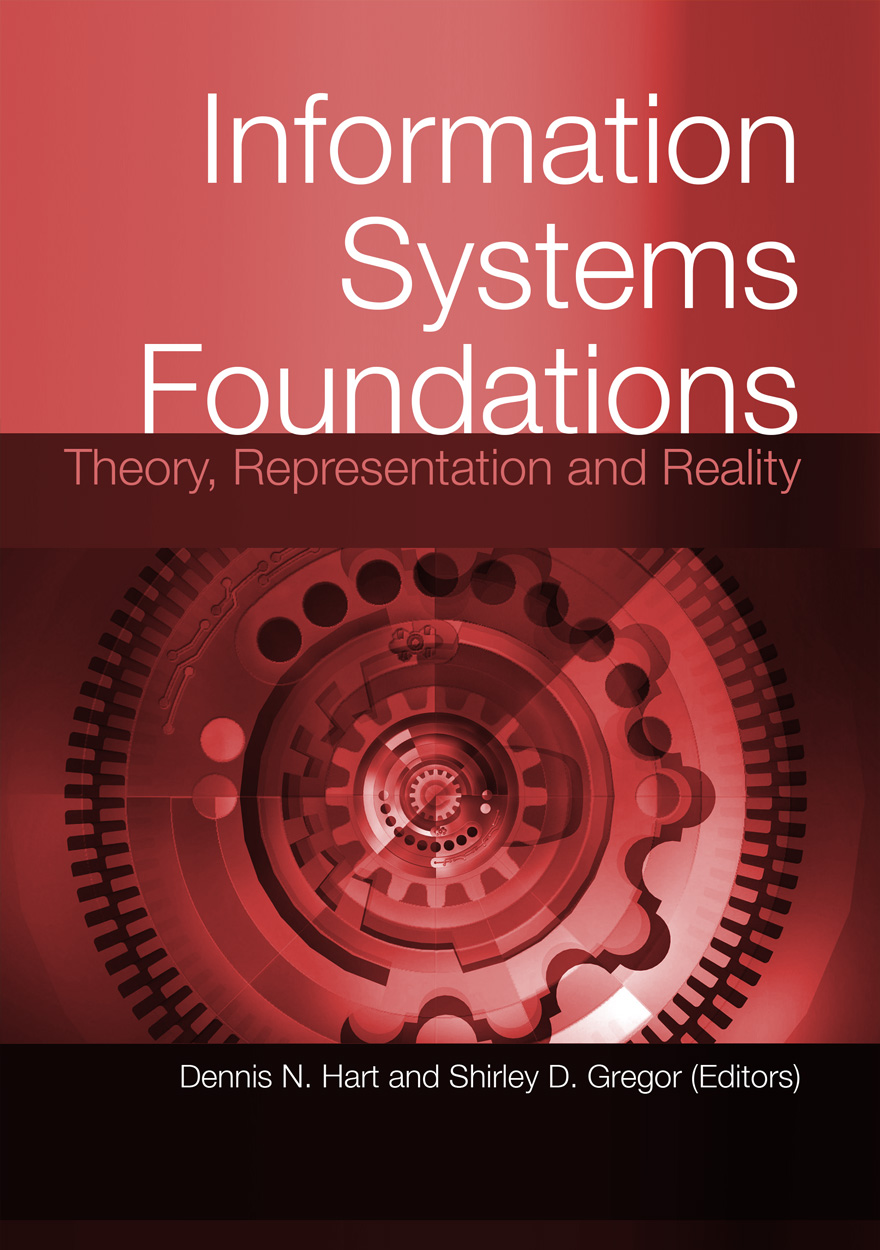
Information Systems Foundations: Theory, Representation and Reality »
Edited by: Dennis Hart, Shirley Gregor
Publication date: November 2007
This volume contains the papers presented at the third biennial Information Systems Foundations (‘Theory, Representation and Reality’) Workshop, held at The Australian National University in Canberra from 27-28 September 2006. The focus of the workshop was, as for the others in the series, the foundations of Information Systems as an academic discipline. The particular emphasis was, as in past workshops, the adequacy and completeness of theoretical underpinnings and the research methods employed. At the same time the practical nature of the applications and phenomena with which the discipline deals were kept firmly in view. Accordingly, the papers in this volume range from the unashamedly theoretical n their focus (Designing for Mutability in Information Systems Artifacts; Towards a Unified Theory of Fit: Task, Technology and Individual) to the much more practically oriented (An Action-Centred Approach to Conceptualising Information Support for Routine Work).
The contents of this volume will be of interest and relevance to academics and advanced students as well as thoughtful and reflective practitioners in the Information Systems field.

Oceanic Explorations »
Lapita and Western Pacific Settlement
Edited by: Stuart Bedford, Christophe Sand, Sean P. Connaughton
Publication date: November 2007
Lapita comprises an archaeological horizon that is fundamental to the understanding of human colonisation and settlement of the Pacific as it is associated with the arrival of the common ancestors of the Polynesians and many Austronesian-speaking Melanesians more than 3000 years ago. While Lapita archaeology has captured the imagination and sustained the focus of archaeologists for more than 50 years, more recent discoveries have inspired renewed interpretations and assessments. Oceanic Explorations reports on a number of these latest discoveries and includes papers which reassess the Lapita phenomenon in light of this new data. They reflect on a broad range of interrelated themes including Lapita chronology, patterns of settlement, migration, interaction and exchange, ritual behaviour, sampling strategies and ceramic analyses, all of which relate to aspects highlighting both advances and continuing impediments associated with Lapita research.
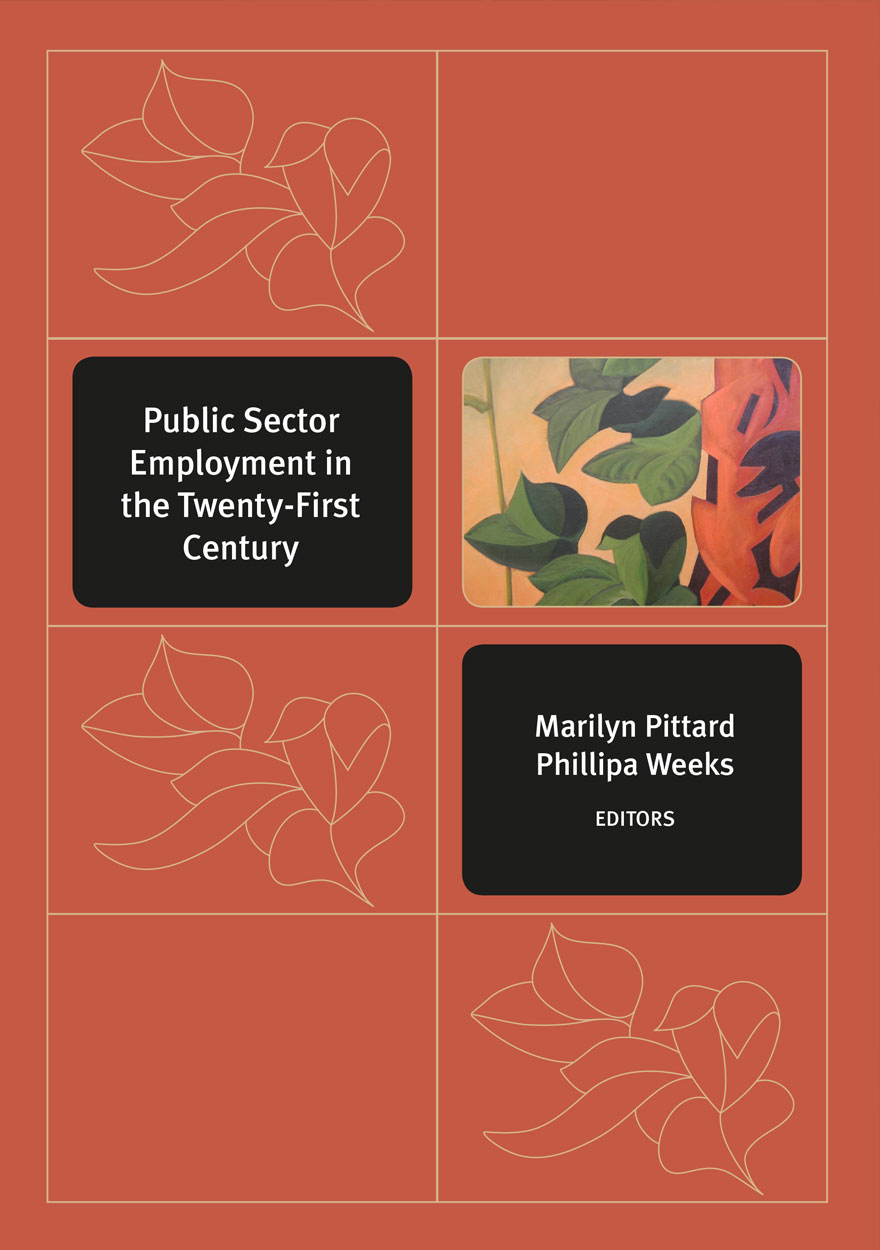
Public Sector Employment in the Twenty-First Century »
Edited by: Marilyn Pittard, Phillipa Weeks
Publication date: November 2007
This book addresses the transformations which have occurred in employment arrangements and practices in the Australian public sector over the past decade and the changes in responsibilities and accountability through employment contracts, whistleblower legislation and partnerships between government and the private sector. It provides a comparative context through studies of reconstruction of the public service in the United Kingdom and New Zealand. Themes of contractualisation, privatisation and outsourcing are explored and critically examined, as well as influences of the industrial relations legislative framework including the Work Choices legislation.

Talking and Listening in the Age of Modernity »
Essays on the history of sound
Edited by: Joy Damousi, Desley Deacon
Publication date: November 2007
Historians have, until recently, been silent about sound. This collection of essays on talking and listening in the age of modernity brings together major Australian scholars who have followed Alain Corbin’s injunction that historians ‘can no longer afford to neglect materials pertaining to auditory perception’.
Ranging from the sound of gunfire on the Australian gold-fields to Alfred Deakin’s virile oratory, these essays argue for the influence of the auditory in forming individual and collective subjectivities; the place of speech in understanding individual and collective endeavours; the centrality of speech in marking and negating difference and in struggles for power; and the significance of the technologies of radio and film in forming modern cultural identities.

Conflict and Resource Development in the Southern Highlands of Papua New Guinea »
Edited by: Nicole Haley, R.J. May
Publication date: November 2007
The Southern Highlands is one of Papua New Guinea’s most resource-rich provinces, but for a number of years the province has been riven by conflict. Longstanding inter-group rivalries, briefly set aside during the colonial period, have been compounded by competition for the benefits provided by the modern state and by fighting over the distribution of returns from the several big mining and petroleum projects located within the province or impinging upon it. Deaths from the various conflicts over the past decade number in the hundreds. As a result of inter-group fighting, criminal activity and vandalism, a number of businesses have withdrawn from the province. Roadblocks and ambushes have made travel dangerous in many parts and expatriate missionaries and aid workers have left. Many public servants have abandoned their posts with the result that state services are not provided. Corruption is rife. Police are often reluctant to act because they are outnumbered and outgunned.
This volume brings together a number of authors with deep experience of the Southern Highlands to examine the underlying dynamics of resource development and conflict in the province. Its primary purpose is to provide some background to recent events, but the authors also explore possible approaches to limiting the human and economic costs of the ongoing conflict and breakdown of governance.

Caretaker Conventions in Australasia »
Minding the Shop for Government
Authored by: Anne Tiernan, Jennifer Menzies
Publication date: October 2007
A revised and updated 2014 edition of Caretaker Conventions in Australasia is available.
In this monograph, Anne Tiernan and Jennifer Menzies capably chart the often hazardous terrain of the ‘caretaker period’ that ensues from the time an election is called until a new government is formed. This is a landscape fraught with political and administrative dangers – particularly for public servants who are required to ‘mind the shop’ and keep the basic machinery of government going. The conventions represent an historical accretion of custom, practice and rules, often leavened with uncertainty. In tackling their subject, Tiernan and Menzies draw upon their shared past experiences as public servants and ministerial ‘staffers’ as well as the highest standards of academic scholarship – this is a ‘must read’ for politicians, public servants and students of government.

The Cult of the Market »
Economic Fundamentalism and its Discontents
Authored by: Lee Boldeman
Publication date: October 2007
The Cult of the Market: Economic Fundamentalism and its Discontents disputes the practical value of the shallow, all-encompassing, dogmatic, economic fundamentalism espoused by policy elites in recent public policy debates, along with their gross simplifications and sacred rules. Economics cannot provide a convincing overarching theory of government action or of social action more generally. Furthermore, mainstream economics fails to get to grips with the economic system as it actually operates. It advocates a more overtly experimental, eclectic and pragmatic approach to policy development which takes more seriously the complex, interdependent, evolving nature of society and the economy. Importantly, it is an outlook that recognises the pervasive influence of asymmetries of wealth, power and information on bargaining power and prospects throughout society. The book advocates a major reform of the teaching of economics.

Myanmar »
The state, community and the environment
Edited by: Monique Skidmore, Trevor Wilson
Publication date: October 2007
Despite deteriorating economic and developmental conditions, worsening environmental problems, and troubles arising from the unresolved status of its ethnic minorities, Myanmar seems no closer to a political resolution. Myanmar’s economy continues to stagnate, with severe implications for its people. Low levels of international assistance have exacerbated the situation.
Myanmar—the state, community and the environment examines the missed opportunities by government and opposition groups to find a way out of the political impasse and improve the standard of living of the people of Myanmar.
This collection provides insights into the country’s economic development, in particular the vital rice-marketing sector and the attempts to expand existing industrial zones. It focuses, for the first time, on Myanmar’s environmental governance with in-depth case studies, and on the increasing need for effective environmental protection and sustainability.

Struggling for the Umma »
Changing Leadership Roles of Kiai in Jombang, East Java
Authored by: Endang Turmudi
Publication date: October 2007
This thesis focuses on the relationship of Indonesian kiai (‘ulama: religious leaders) in Jombang to their wider social and political situation. It argues that the charismatic authority exerted through the leadership of the kiai in Java has limitations in terms of its legitimacy. At the very least it has boundaries that determine areas or circumstances for its legitimate expression. It also argues that the kiai’s influence in politics is not as strong as in other domains. Despite being a charismatic figure, only a minority of followers feel compelled to follow the kiai’s political example. Differences between the kiai and his followers in relation to political behaviour are common, especially after the transformation of the Islamic political party. Nevertheless, the role of the kiai in general remains important in the eyes of Muslim society.
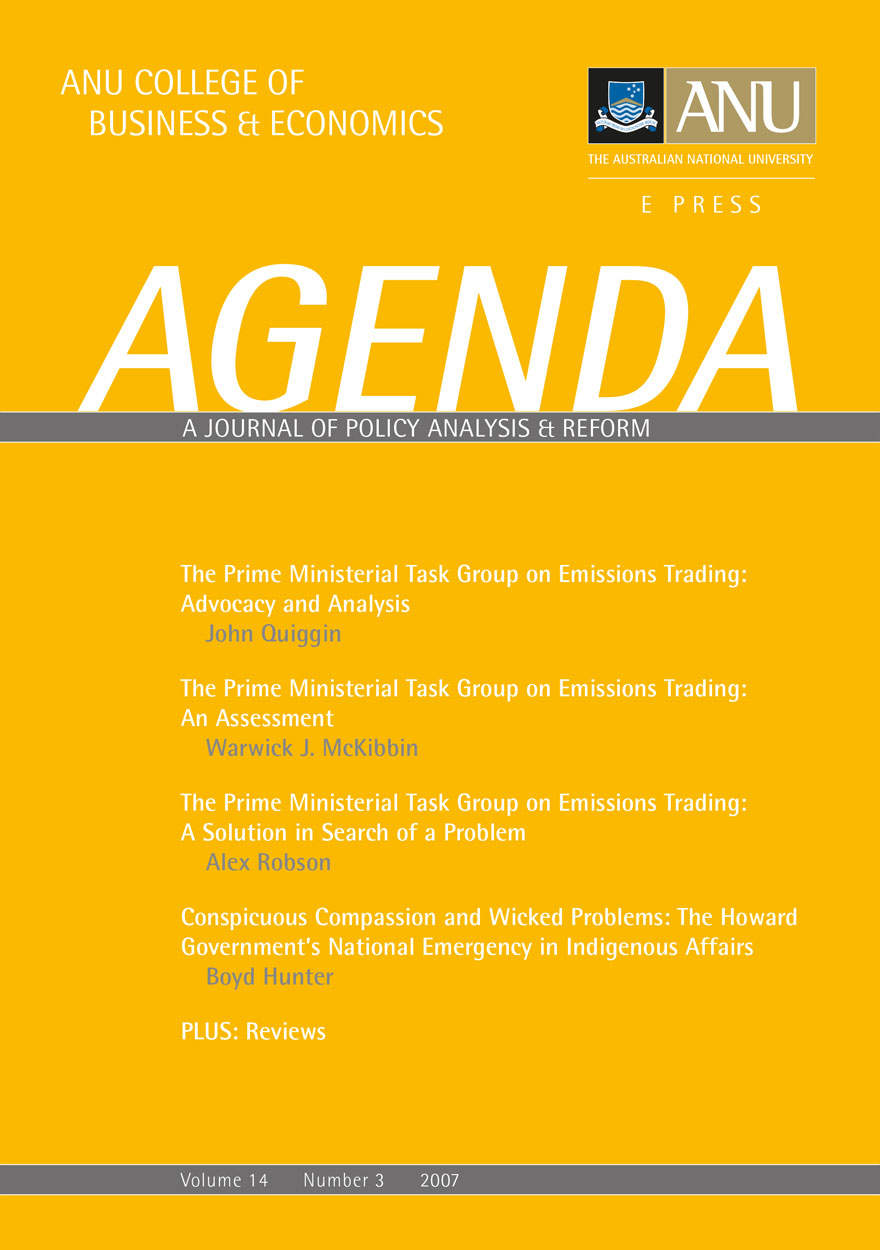
Agenda - A Journal of Policy Analysis and Reform: Volume 14, Number 3, 2007 »
Edited by: Franco Papandrea, Graeme Wells
Publication date: October 2007
Agenda is a refereed, ECONLIT-indexed and RePEc-listed journal of the College of Business and Economics, The Australian National University. Launched in 1994, Agenda provides a forum for debate on public policy, mainly (but not exclusively) in Australia and New Zealand. It deals largely with economic issues but gives space to social and legal policy and also to the moral and philosophical foundations and implications of policy.
Subscribe to the Agenda Alerting service if you wish to be advised on forthcoming or new issues.
Download for free
Not available for purchase



